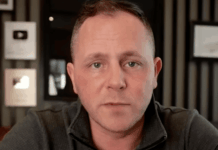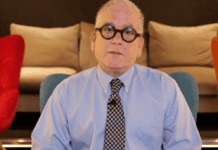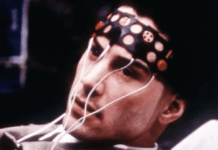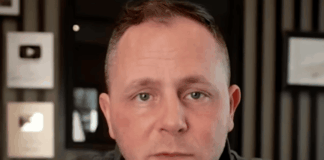
By Guest Writer Michael Dehoyos,
The benefits of daily meditation are already widely touted by people in all sorts of areas, from yoga to high finance. The benefits that people claim to get from practicing meditation include better sleep, lower stress and anxiety, higher productivity, a renewed sense of purpose and much more. Meditation is what you make of it, so setting off on your journey with some sort of goal is actually a very strong idea and will more likely lead you to success. One area that is currently being explored by people practicing meditation is the idea of trust and how meditation can help in that area. Let’s take a closer look at how meditation can influence how you understand and practice trust.
Trusting Yourself
The biggest step to take in meditation for trust is trusting yourself. A lot of our daily stress and, in particular, anxiety, comes from not wholly trusting ourselves. “Meditation is a great way to get back in touch with yourself, both in physical terms and mental terms. In fact, often, the one leads to the other”, explains Sebastian Shanks, lifestyle blogger at 1Day2Write and WriteMyx. Many of the mind’s most fatal flaws are connected to the capacity that all humans have for self-doubt, something which, when worked on, can be alleviated. One of the ways to address self-doubt is by meditation. Even the meditative state can be a trust exercise for some people, particularly those who have real anxiety or stress. The more you focus on yourself, on your present thoughts, the more you get to understand yourself. And, it’s clear that understanding is the first step towards trusting. You can’t fully trust something you don’t understand. This makes meditation as an act of self-discovery the most precious trait that it offers in terms of trust.
Once you trust yourself fully, you will find that the skills you have developed in meditation can be carried out into the world. Trust is actually an immensely powerful thing and can really make your life a lot easier and make you a lot more confident.
Trusting Others
More difficult than trusting yourself can be trusting others. “The truth of the matter is that in order to fully trust any other person you need to first trust yourself. Trusting others requires reflection and ordered thoughts based on perception and knowledge, neither of which is easy to achieve”, says Meredith Healy, health writer at BritStudent and NextCoursework. When you get started with meditation and you are focusing on trust, learning about yourself, learning to trust yourself can be the gateway to solving lots of different problems that you may have elsewhere in your life. One such problem is trusting others. Trust issues can be generated out of all sorts of origins. In particular, people develop trust issues when trust that they developed, with a parent, friend or loved one, gets shattered for some reason. Meditation can actually work to heal wounds of the past in this regard as well, but in terms of rebuilding trust, meditation has a lot to offer. When you look at yourself in relation to others you may need to think about how you manage your relationships and on what basis you go about it the way you do. This thinking can be done most effectively through meditating, where you are more likely to achieve a clarity of thought over who you trust and why it is that you trust them than simply thinking about it in amongst the business of a usual day. The meditation can help you address doubts and, more importantly, identify how much of your doubt is justified and how much is simply based around your own complex understanding of a situation. The more you practice the more you will engrain an inherent metric for trust that you can apply as you go about your normal life, meeting and engaging with new people and old friends alike.
Conclusion
Meditation is powerful. It trains the mind and it can eliminate doubts and anxieties when done effectively. Trusting others and trusting yourself are examples of difficult psychological issues which can be handled very well through careful meditation and through repeated practice of what you learn.

Michael Dehoyos is an wellbeing analyst at PhdKingdom and Academic Brits. He assists companies in optimizing their staff mental health practices as well as sharing his knowledge by contributing to numerous sites and publications, the academic service, Assignment Help, amongst them.
Disclaimer: We at Prepare for Change (PFC) bring you information that is not offered by the mainstream news, and therefore may seem controversial. The opinions, views, statements, and/or information we present are not necessarily promoted, endorsed, espoused, or agreed to by Prepare for Change, its leadership Council, members, those who work with PFC, or those who read its content. However, they are hopefully provocative. Please use discernment! Use logical thinking, your own intuition and your own connection with Source, Spirit and Natural Laws to help you determine what is true and what is not. By sharing information and seeding dialogue, it is our goal to raise consciousness and awareness of higher truths to free us from enslavement of the matrix in this material realm.
 EN
EN FR
FR

























